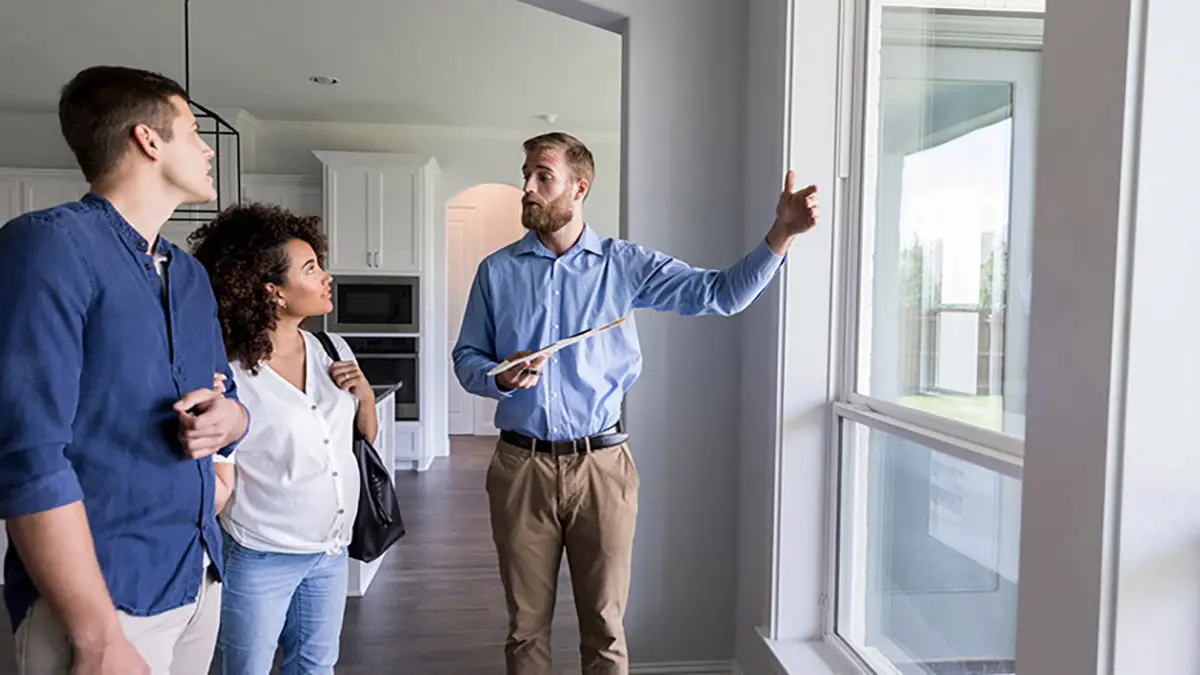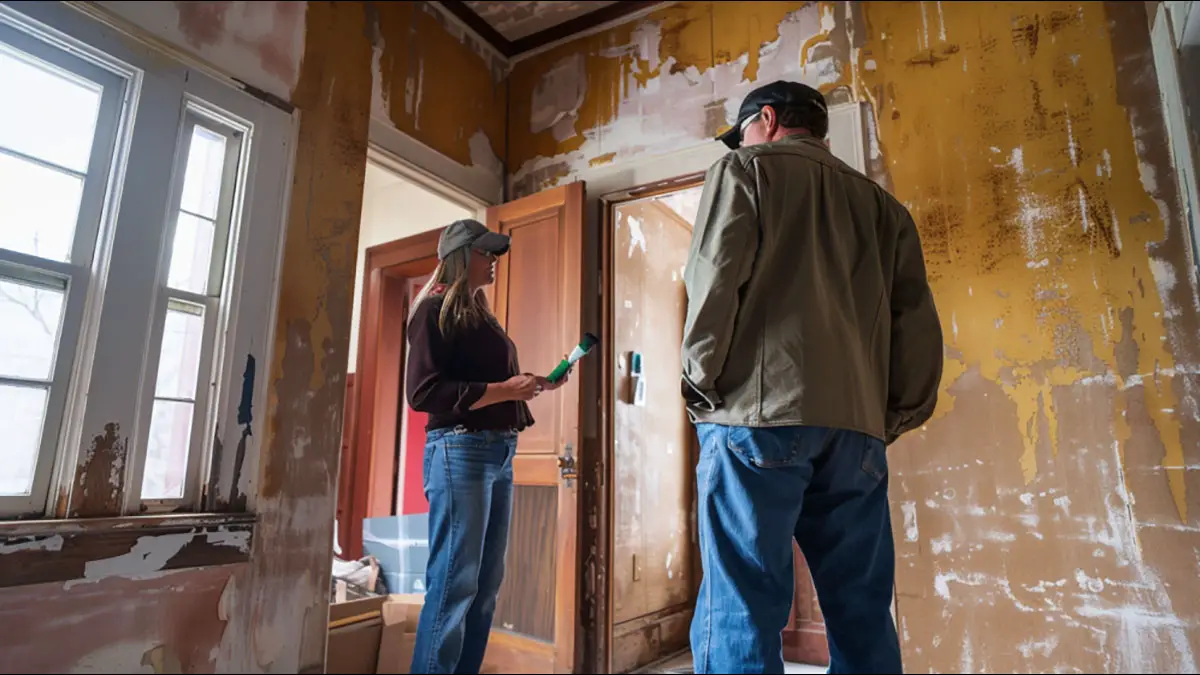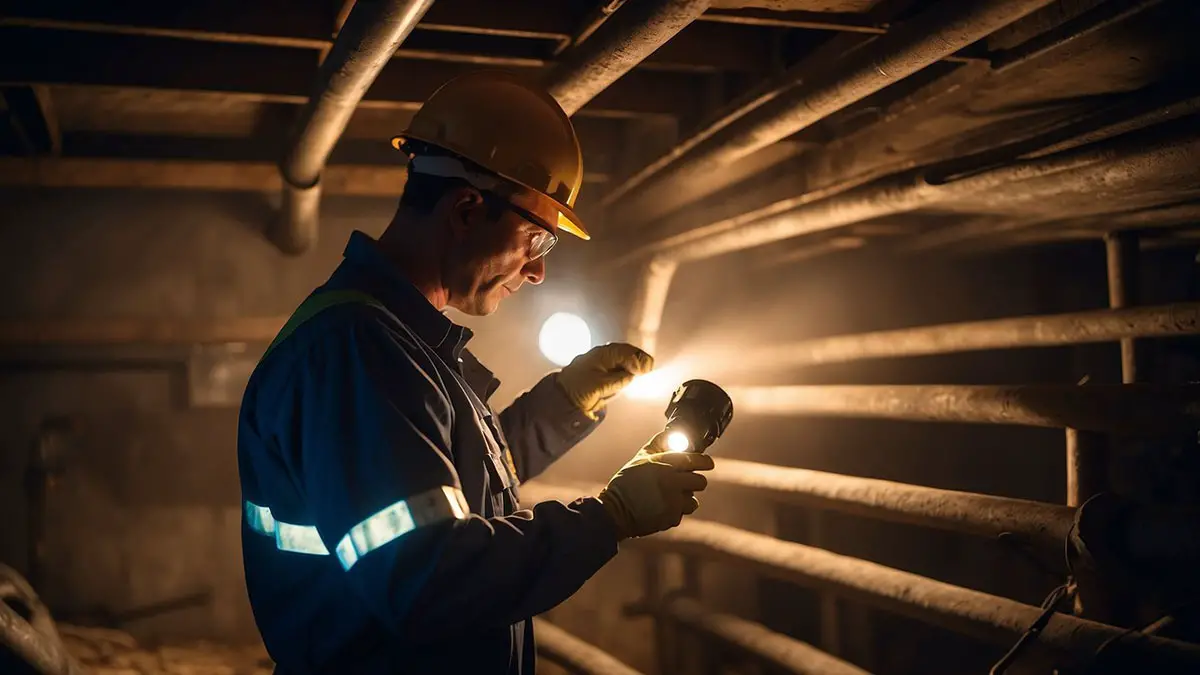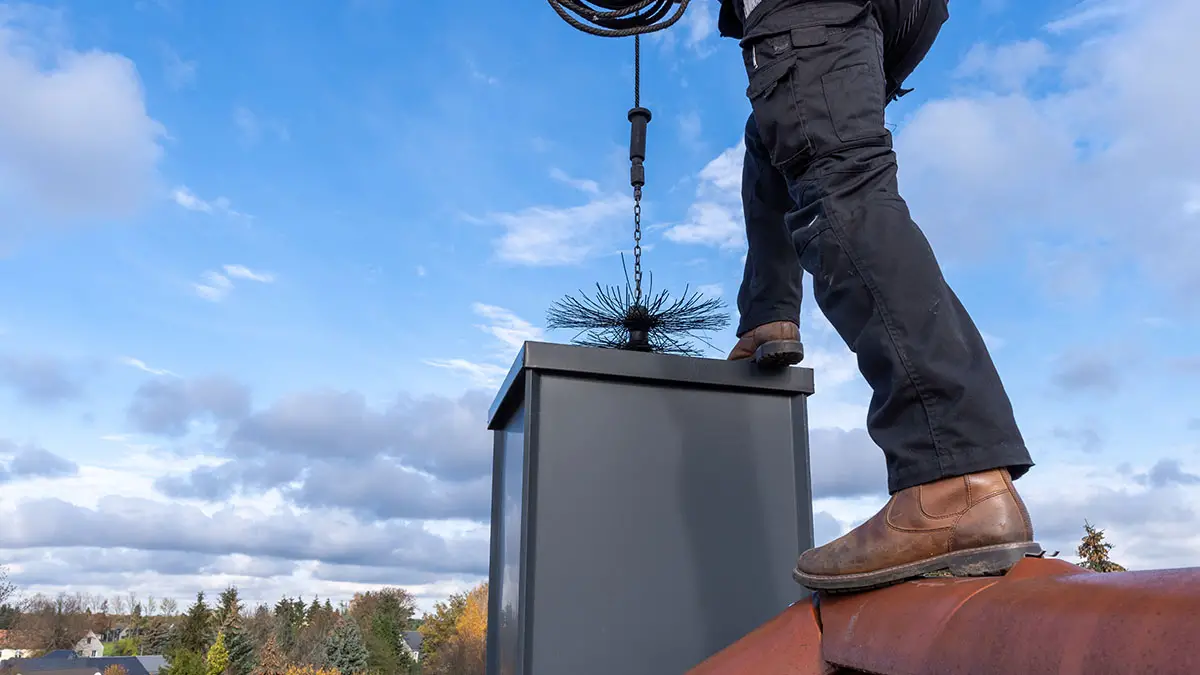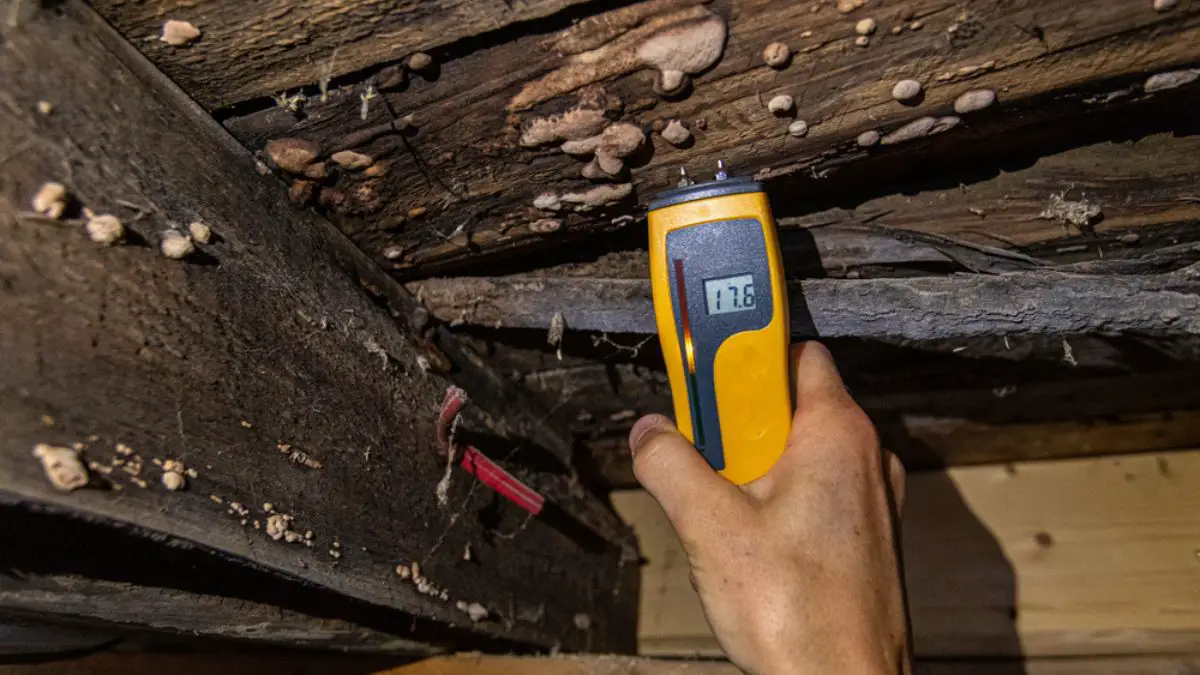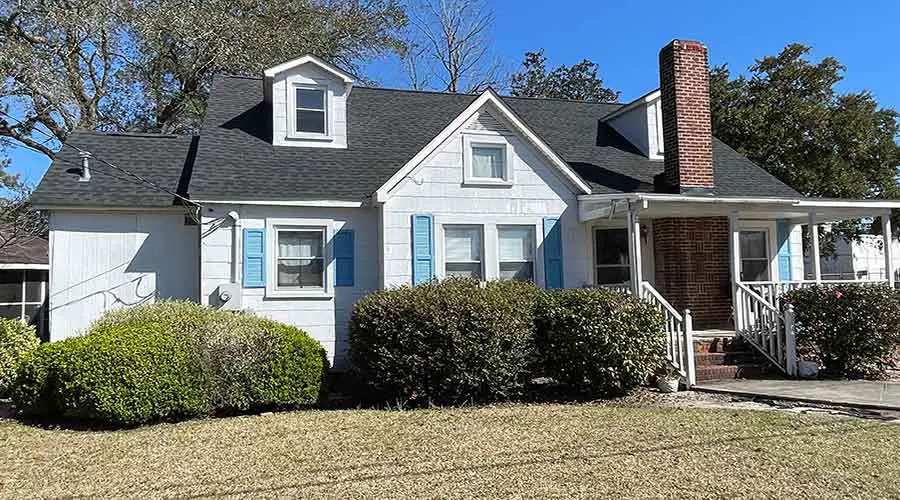
Getting a mortgage on a house is typically not a situation most people want to be in, but finding out that your home doesn’t qualify for a mortgage is an even more troublesome ordeal. It leads to the question of whether you get a mortgage on a house with asbestos siding or not?
You can most definitely get a mortgage on your house if it has asbestos siding, but there are certain circumstances where the opposite may ring true.
The only real discerning factor on whether or not you will be able to get a mortgage on a house with asbestos siding comes into play when the siding itself is damaged or in relatively poor condition.
If the siding itself is in a state of disrepair, someone needs to replace the siding relatively soon, most likely, and this is where all the trouble starts.
Asbestos was in many building products before the EPA banned it in 1989. Many old houses have some common building materials with asbestos present. Problems with asbestos arise when the materials are airborne in unventilated areas. Asbestos exposure is known to cause lung cancer.
Common building materials with types of asbestos include:
- Floor tiles including flooring glue
- Texturerd walls and popcorn ceilings
- Types of insulation around steam pipes, plumbing, and wire sheathing
- Fiber cement shingle siding
- Roofing materials including felt underlayment and shingle tiles
Asbestos shingle siding is a hard fiber cement material that is durable. It is generally considered ok provided it’s not brittle or broken and is routinely painted with quality exterior paint.
During home improvement projects, many contractors will install vinyl siding directly over asbestos siding. However, it’s best practice to have an asbestos abatement company remove and dispose of asbestos siding according to EPA standards when installing new siding on a house.
If you wish to know more information on asbestos siding, keep reading. We will discuss if the bank will finance your home or if the siding affects resale value.
What is Asbestos Siding?
By definition, asbestos siding is any siding that contains asbestos fibers within it.
While you wouldn’t think this is a big deal at first glance, asbestos fibers are scientifically proven to cause cancer and several other different health issues if you happen to get exposed to it, more explicitly inhaling it.
Medical Risks aren’t Worth it
Because of these health risks, most people don’t want anything to do with a home with asbestos material in it, regardless of whether it is in the siding, roofing, insulation, or any other possible place you might find asbestos cropping up in your home.
Professional Training is Required
Another big issue that goes hand in hand with asbestos siding crops up when you need to get rid of it is that you need the proper training and equipment to do so.
Knowing and having these things to handle proper asbestos disposal can make your average removal costs astronomical and should not be directed by anyone who is not a professional.
Selling the Property
Because of the large number of problems that can originate when dealing with a home with any presence of asbestos, it should come as no surprise when you are attempting to sell or purchase a home. Many states have asbestos disclosure requirements when selling a home. Consult with a licensed real estate agent for more on your state and local requirements.
Whoever owns the property is legally required to inform you of the material before taking financial action.
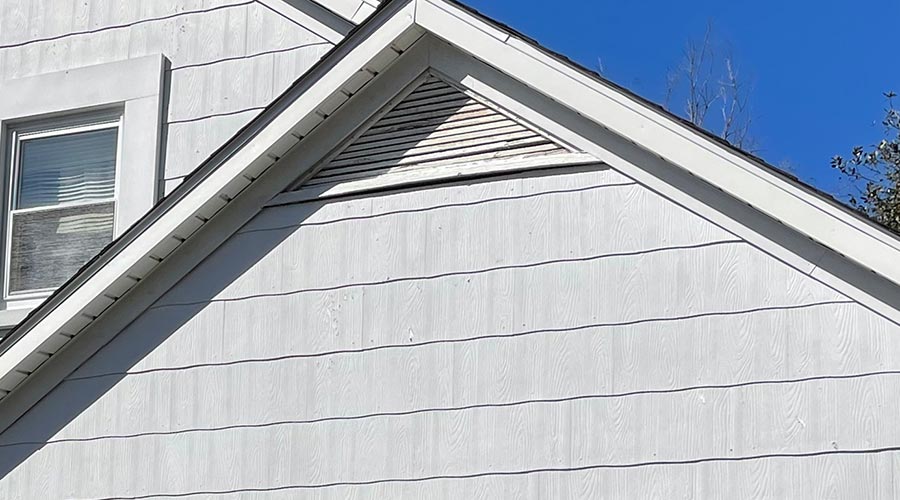
Will a Bank Finance a House with Asbestos Siding?
A bank may be willing to finance a house with asbestos siding, but they always handle it case-by-case.
The reason is that local and federal laws dictate how they must handle each circumstance and the current state of the asbestos siding is.
Assuming your siding is in good condition and isn’t cracking, peeling, flaking, or has any damage to it, or has the risk of damage being done to it, you could have a very realistic chance of being approved for finance on the home itself.
However, the opposite can also run true if the asbestos is damaged. In that case, the bank may inform you that you must take some action to remedy the situation before the bank can do any financing on it, and that hold will remain in place until action is taken.
Can You Get an FHA Loan with Asbestos Siding?
Just like the circumstance listed with both financing and generally reselling a home with asbestos siding, if the siding in question is in good shape, you probably don’t have anything to worry about, but when damage arises, so do the costs.
As we mentioned above, all homes that have any amount of asbestos material in them get handled on an individual basis. In that case, the natural condition of the asbestos-laden material itself is typically the only thing you need to be concerned with.
By and large, you can expect a hard stop to be placed on any transferring of funds on homes that have asbestos siding due to the number of risks in place for everyone involved with the house itself.
Unlike conventional loans, different property standards apply to government-backed loans like FHA, VA, and USDA. Rehabilitation mortgages, like 203k loans, allow homeowners to finance both the home and necessary repairs.
Lenders are frequently unwilling to provide home loans for properties that need major restoration work; however, government-backed 203k loans offer renovation mortgages that enable borrowers to pay for the property and required repairs.
These government-backed loans are facing challenges as today’s renovation costs are exceedingly higher and exceed loan limits for properties with significant structural issues and safety issues like asbestos. It’s becoming commonplace for the renovation costs to exceed the market value of properties in distressed economic areas.
Does Asbestos Siding Affect Resale Value?
Suppose your home has any asbestos material in it at all. In that case, you can expect any prospective buyers to want a discount on the initial asking price immediately.
In a worst-case scenario, people will stop trying to pursue the property any further entirely.
In all honesty, this should not come as a surprise to anyone involved. There is both significant risk and financial investment that you incur if you purchase or attempt to sell a property with asbestos because of the unique level of care required to deal with the situation when it does inevitably arise.
Removing asbestos siding will require you to hire a professional, and as you may have guessed, professional work is often costly.
The cost will be considered by anyone considering the offer, and lowball offers on such properties should be expected.
What if My House has Asbestos Siding?
Suppose your home has tested positive for asbestos siding. In that case, you will be extremely careful about any harm that it can do to the siding itself, even more so when you consider altering it to any degree.
Even the smallest breaking of fibers on asbestos siding can release them into the air, causing immediate cause for concern to anyone involved.
Removing the siding itself can be costly but worth the investment if you want to attempt to sell the home without navigating a lot of haggling for your time.
Another alternative you can seek when dealing with asbestos siding could come in the form of painting it.
Covering the asbestos with paint or even stucco, depending on whether or not your climate would allow the plaster to remain without running the risk of becoming damaged itself, can be an excellent solution if you already are dealing with asbestos.
Do You Have to Disclose Asbestos When Selling a House?
Short, sweet, and to the point, yes, you do have to disclose when a house has asbestos in it, even if your home used it for insulation, siding, in the walls. Overall, you must tell if any trace is in the house to a potential buyer.
If you don’t, you can not only expect a heft acceptable but potential lawsuits that crop up for putting people at risk. If the asbestos directly impacted anyone, criminal charges should apply depending on the situation.
What Makes a House Uninhabitable for a Mortgage?
Homes that don’t have the bare necessities for a civilized living won’t qualify for a mortgage. Mortgage lenders usually don’t require a home inspection, however, try will recommend it so that you know what you’re buying and are happy with your purchase decision.
You can expect a home that does not have heating, kitchen, or bathrooms in states of disrepair or a home that isn’t secure against the elements to be ineligible.
Furthermore, if the house is in a derelict state, it won’t qualify either. Things like having a hole in the roof or the inner portion of the home is directly exposed to whatever the weather of your climate is may also cause you not to be qualified for a mortgage.
Do Conventional Loans Require Repairs?
Whether or not your home requires repairs depends entirely on the verdict of your home’s appraisal.
If it was in good condition and you found no issues, you won’t need any repairs. Assuming the opposite is true and problems were revealed, they will need to be fixed before issuing a mortgage loan.
Conclusion
Regardless of the reasoning behind it, dealing with a home that has asbestos siding will be annoying, as almost all solutions are going to be bandaids on a more significant problem until the asbestos itself is removed by a professional.
Until the asbestos itself is gone entirely, you can expect it to be a concern no matter who is dealing with it.
Sources



